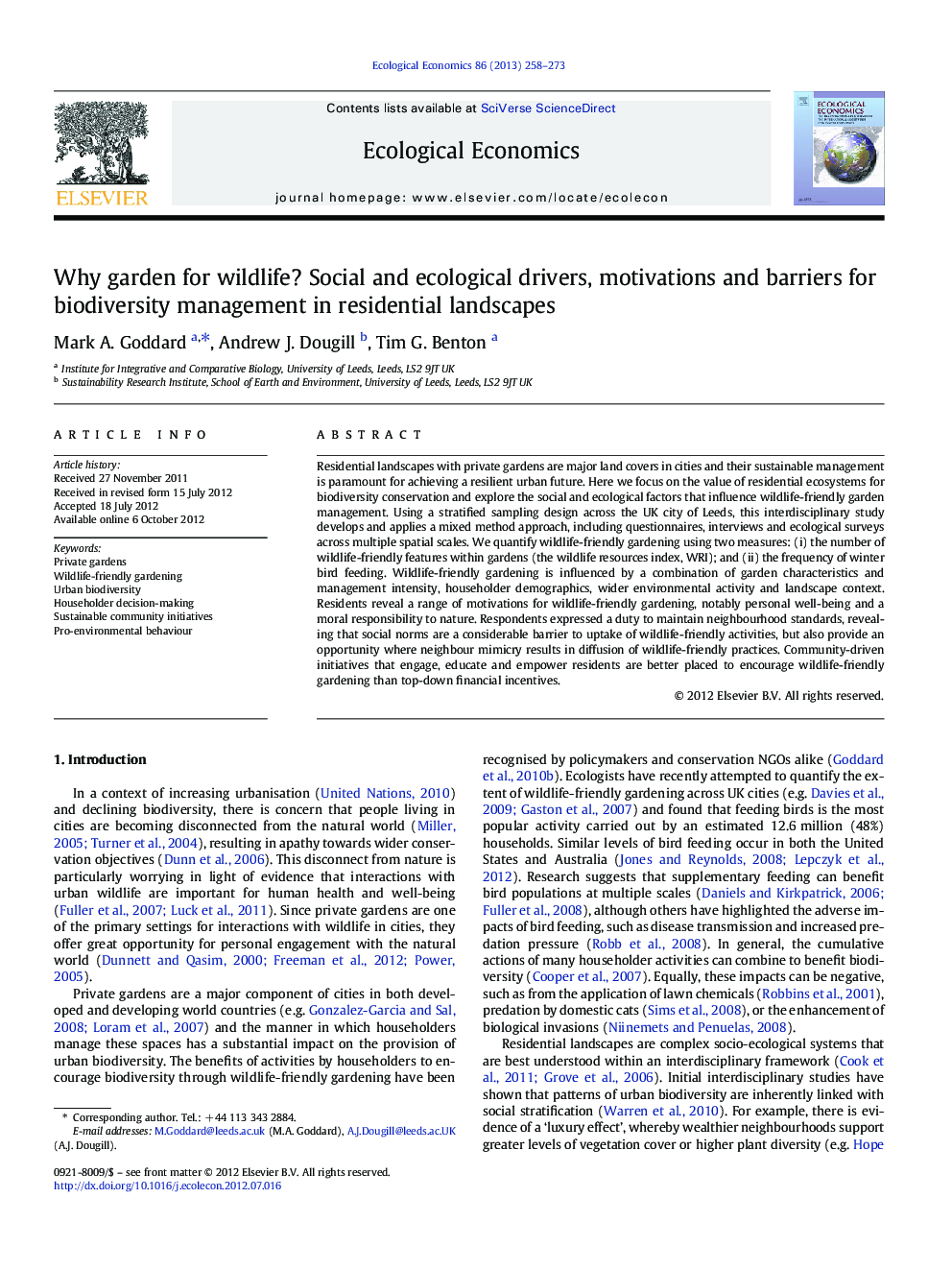| کد مقاله | کد نشریه | سال انتشار | مقاله انگلیسی | نسخه تمام متن |
|---|---|---|---|---|
| 5050140 | 1476393 | 2013 | 16 صفحه PDF | دانلود رایگان |
Residential landscapes with private gardens are major land covers in cities and their sustainable management is paramount for achieving a resilient urban future. Here we focus on the value of residential ecosystems for biodiversity conservation and explore the social and ecological factors that influence wildlife-friendly garden management. Using a stratified sampling design across the UK city of Leeds, this interdisciplinary study develops and applies a mixed method approach, including questionnaires, interviews and ecological surveys across multiple spatial scales. We quantify wildlife-friendly gardening using two measures: (i) the number of wildlife-friendly features within gardens (the wildlife resources index, WRI); and (ii) the frequency of winter bird feeding. Wildlife-friendly gardening is influenced by a combination of garden characteristics and management intensity, householder demographics, wider environmental activity and landscape context. Residents reveal a range of motivations for wildlife-friendly gardening, notably personal well-being and a moral responsibility to nature. Respondents expressed a duty to maintain neighbourhood standards, revealing that social norms are a considerable barrier to uptake of wildlife-friendly activities, but also provide an opportunity where neighbour mimicry results in diffusion of wildlife-friendly practices. Community-driven initiatives that engage, educate and empower residents are better placed to encourage wildlife-friendly gardening than top-down financial incentives.
⺠Residential landscapes are crucial for the preservation of urban biodiversity. ⺠Interdisciplinary methods used to assess the drivers of wildlife gardening ⺠Wildlife gardening is influenced by social and landscape factors across scales. ⺠Social norms can be harnessed to maximise wildlife-friendly gardening practices. ⺠Community initiatives can motivate improved urban biodiversity management.
Journal: Ecological Economics - Volume 86, February 2013, Pages 258-273
